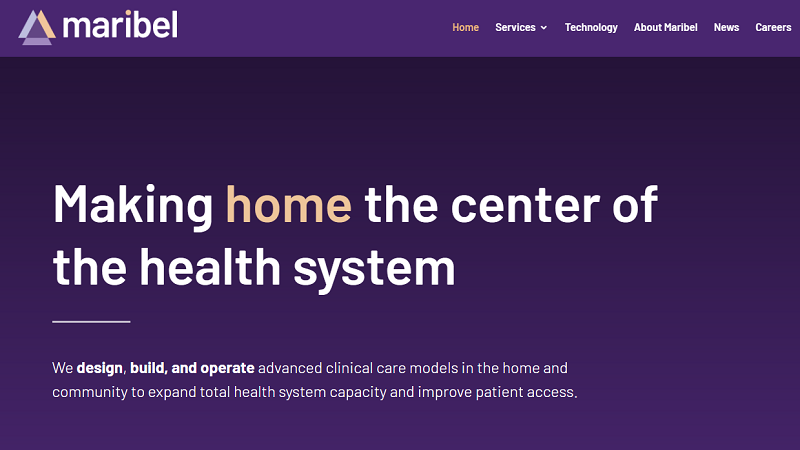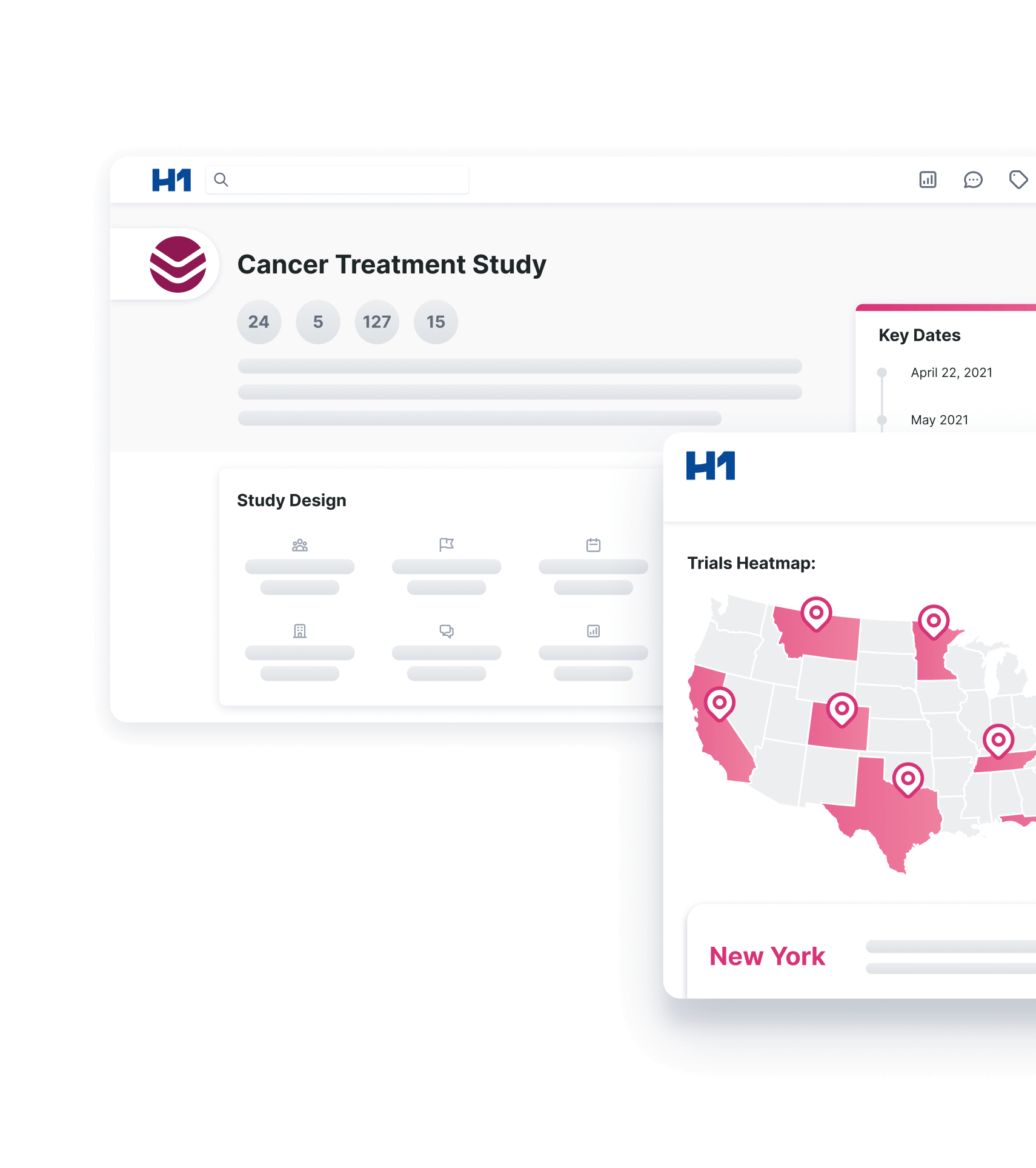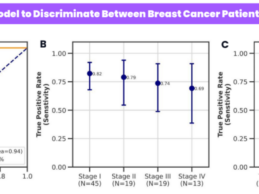What You Should Know:
- Maribel Health, a turnkey partner for health systems looking to design, build, and operate a full continuum of advanced home and community services, announced today the completion of a $25 million Series A funding round led by General Catalyst.
- The new funding will be used to accelerate growth with Maribel's initial partners, to attract and onboard the talent required to serve its collaborators worldwide and to support continued
Read More
Breast Cancer
H1 Launches Advanced Diversity and Clinical Trial Performance Insights
What You Should Know:
- H1, the connecting force for global healthcare provider, clinical, science, and research information, today announced the availability of indication-level diversity insights in addition to institution, provider, and patient diversity data within its Trial Landscape solution.
- Additionally, H1 has successfully onboarded its first customer – a top 20 pharmaceutical company – onto the H1 Data Network, a new solution that aggregates sponsor-contributed site and
Read More
Why Researchers Should Explore New Apps of Machine Learning
As the amount of real-world data (RWD) in the pharmaceutical industry continues to grow, so does the usage of machine learning (ML) to analyze that data and gain insights. In fact, in a recent survey, 95% of life sciences executives said they expect to utilize ML in the next few years to generate real-world evidence (RWE) from this data.
With such a large and growing volume of data available, researchers may be wondering how they can take advantage of all of it to enhance and expand the
Read More
5 Key Trends in Women’s Health Technology for 2023 to Watch
Women's healthcare faces an uphill battle after centuries of being ignored. Yet, ironically enough, women currently share half of the consumerism market, hold power over 80% of household financial decisions, and make 70% of healthcare-related choices in their families.
Despite this, their access to proper healthcare often comes up short.
But with the market for women's healthcare predicted to be worth over $47 billion, changes are starting to occur. And with the recent attacks and laws on
Read More
Biden Admin Builds on Cancer Moonshot with 13 More Initiatives
What You Should Know:
- One year ago, President Joe Biden and First Lady Jill Biden reignited the Cancer Moonshot, setting an ambitious, achievable goal: to reduce the death rate from cancer by at least 50 percent over the next 25 years, and improve the experience of people and families living with and surviving cancer, ultimately ending cancer as we know it today.
- The Cancer Moonshot has spurred tremendous action across the federal government and from the public and private
Read More
Praying For The Survival of the NHS Will Not Be Enough To Save It
It’s often said that the National Health Service is the closest thing Britain has to a unifying religion. If that is the case, then the faith of the population is being tested like never before,
With budgets already stretched before the COVID pandemic, additional cost pressures since heaped on health boards across the country by double-digit inflation have brought the NHS closer to breaking point than at any time in its history.
Every passing day seems to bring bleaker news for the
Read More
Medical Natural Language Processing Tech Has Come of Age
For many years, natural language processing (NLP) has held the promise of dramatically increasing the ability of healthcare organizations to quickly and accurately understand unstructured medical text in clinical notes. Using medical NLP, healthcare providers, clinical researchers, and payers would uncover meaningful insights hidden in unstructured text faster, with fewer errors, and at less cost than manual data review and analysis. This high-quality medical-grade data in turn would drive
Read More
Ibex Study Finds AI Highly Accurate in Cancer Identification
What You Should Know:
- The latest study from Ibex Medical Analytics and the Institut Curie, published in Nature, demonstrates how AI implementation across pathology labs can significantly improve the outcome of cancer care.
- The study analyzed Ibex’s AI-based quality control solution for breast biopsy review on over 15,000 slides over a diverse cohort. The study found the AI algorithm achieved high accuracy in identifying various types of cancer and 51 different morphological features of
Read More
New Liquid Biopsy Detects Breast Cancer at Its Earliest Stages
What You Should Know:
- Exai Bio and researchers at UCSF released data demonstrating that Exai’s novel, RNA-based liquid biopsy platform accurately detected breast cancer at the earliest stages and smallest tumor sizes.
- Earlier detection of breast cancer is crucial for optimal patient outcomes but cannot always be achieved based on symptoms or mammography.
Non-Invasive Blood-Based Platform Delivers Promising Data on Detecting Breast Cancer At It’s Earliest Stages
Exai Bio is a
Read More
RSNA: NVIDIA Partners With NHS Trusts to Deploy AI Platform in UK Hospitals
What You Should Know:
- A consortium of 10 National Health Service Trusts — the publicly funded healthcare system in England — is now deploying the MONAI-based AIDE platform across four of its hospitals, providing artificial intelligence (AI)-enabled disease-detection tools to healthcare professionals serving 5 million patients a year.
- AIDE, short for AI Deployment Engine, is expected to be rolled out next year across 11 NHS hospitals serving 18 million patients, bringing AI
Read More










